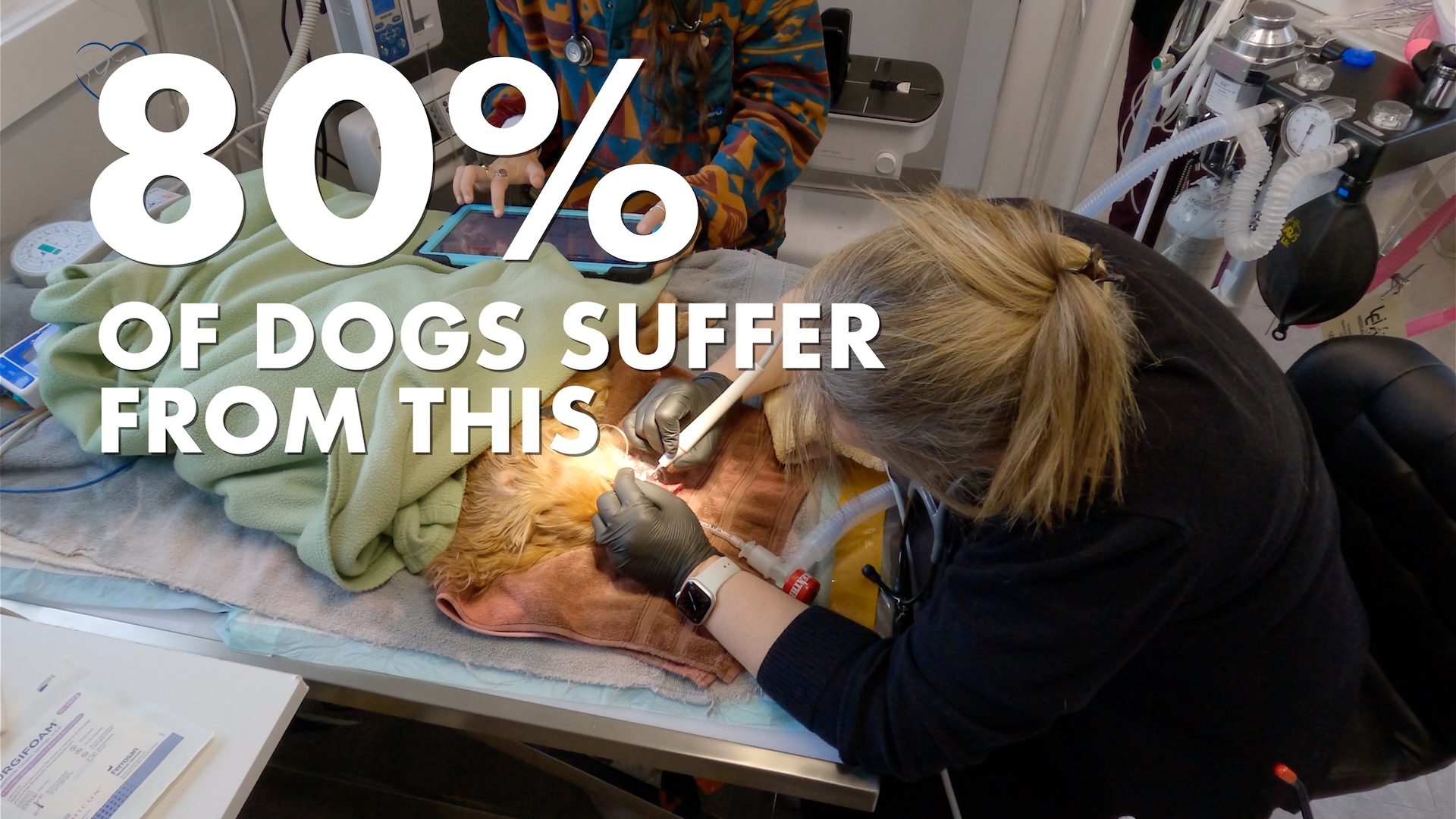
The Silent Threat: Understanding Periodontal Disease in Dogs
In the world of pet health, there’s a silent epidemic that’s affecting our furry friends, particularly those over the age of three. At i-Care Veterinary Hospital, we’re raising awareness about periodontal disease, a condition that impacts up to 80% of dogs once they surpass this age milestone. This alarming statistic is more than just a number—it’s a call to action for pet parents everywhere to prioritize their dog’s dental health.
What is Periodontal Disease?
Periodontal disease is a progressive condition affecting the structures surrounding the teeth, including the gums and bone. It starts with the simple buildup of plaque, which, if not removed, hardens into tartar. This can lead to gingivitis, an inflammation of the gums, which is the earliest stage of periodontal disease. Without intervention, it can advance, leading to tooth loss, bone destruction, and even systemic health problems.
Beyond Bad Breath: The Health Risks of Periodontal Disease
While bad breath (halitosis) is a common sign of dental issues in dogs, periodontal disease carries far more serious risks than an unpleasant odour. Here are the critical health risks associated with this dental condition:
- Systemic Infections: The bacteria from periodontal disease can enter the bloodstream, potentially damaging vital organs like the heart, liver, and kidneys.
- Pain and Discomfort: Inflamed gums and lost teeth can cause significant pain, affecting your dog’s mood, behaviour, and overall quality of life.
- Bone Loss: Advanced periodontal disease can lead to the destruction of the bone structure that supports teeth, making it difficult for your dog to eat and leading to further health complications.
Prevention and Treatment: Keeping Your Dog’s Smile Bright
The good news is that periodontal disease is largely preventable. Here at i-Care Veterinary Hospital, we emphasize the importance of a comprehensive dental care routine that includes:
- Regular Veterinary Check-ups: Professional dental exams and cleanings are crucial for removing plaque and tartar buildup that can lead to periodontal disease.
- At-Home Dental Care: Brushing your dog’s teeth regularly with canine-specific toothpaste can significantly reduce plaque buildup.
- Diet and Dental Chews: Certain foods and dental chews are designed to help minimize plaque and tartar accumulation.
Taking Action Against Periodontal Disease
As pet owners, our dog’s health and happiness are in our hands. Understanding the risks associated with periodontal disease and taking proactive steps to prevent it are key to ensuring our dogs lead long, healthy lives. At i-Care Veterinary Hospital, we’re committed to providing you with the knowledge and tools you need to fight this silent threat.
Remember, early detection and treatment can make all the difference. If you’re concerned about your dog’s dental health or it’s been a while since their last dental check-up, we’re here to help. Schedule an appointment with us today, and let’s work together to keep those tails wagging and those smiles shining bright.

No Comments